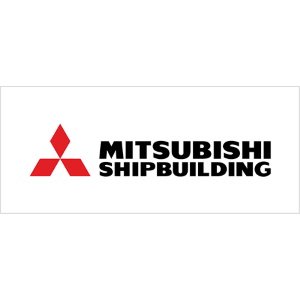The Nippon Foundation, Mitsubishi Shipbuilding Co. Ltd, a part of Mitsubishi Heavy Industries Group, and Shin Nihonkai Ferry Co., Ltd. have successfully completed a demonstration test of the world’s first fully autonomous ship navigation systems on a large car ferry, conducted on the Iyonada Sea from Shinmoji, Kitakyushuu City, on January 17.
This demonstration was part of MEGURI 2040, a project promoting the development of fully autonomous vessels supported by The Nippon Foundation. This test demonstrated the world’s first fully autonomous navigation system, on a 222-meter ferry, with autonomous port berthing and unberthing using turning and reversing movements and high-speed navigation of up to 26 knots. Other new technologies included in the advanced fully autonomous operation system include sensors to detect other ships using infrared cameras, a remote engine monitoring system, and a sophisticated cyber security system. These advances in fully autonomous ship navigation are seen as a significant step toward safer and more efficient coastal shipping.
Research and development of fully autonomous ship navigation is intended to address maritime issues including crew shortages and accident prevention. This is also expected to become a “future industry” through which Japan can demonstrate to the world its advanced technologies in areas including ICT, AI, and image analysis technology.
The Nippon Foundation launched the MEGURI 2040 fully autonomous ship navigation project in February 2020 through support for five consortia, which will all be conducting demonstration tests to verify their fully autonomous navigation system concepts from January to March 2022.
SOLEIL ferry
These developments will help resolve issues in coastal shipping including improved safety, crew labor savings
Today’s successful demonstration test was of the fully autonomous Smart Coastal Ferry project. The newly built SOLEIL ferry began navigating with an onboard crew on July 1, 2021, compiling data for the development of a fully autonomous ship navigation system.
Mitsubishi Shipbuilding Co., Ltd., which has experience in developing navigation support systems that realize automation and crew labor savings, is responsible for the integration of the entire system, and Shin Nihonkai Ferry Co., Ltd. is in charge of setting the vessel’s system requirements and conducting the demonstration test. These developments will help resolve issues in coastal shipping including improved safety, crew labor savings, and cost reductions.
The demonstration test of the world’s first fully autonomous ship navigation systems of the 222-meter smart vessel was conducted on a 240-km route from Shinmoji (Northern Kyushu) to Iyonada, which takes approximately 7 hours, at a maximum speed of 26 knots (approximately 50 km/hour).
fully automated vessel
One of the biggest issues of a fully automated vessel is fault prediction, and enhanced engine monitoring technologies
The test vessel was equipped with a high-precision sensor image analysis system with infrared cameras that can detect other ships even in darkness, a SUPER BRIDGE-X automated ship navigation system that includes an automated avoidance function, and an advanced automated port berthing/unberthing operation system that can perform turning and reversing movements that are even difficult for manned vessels.
One of the biggest issues of a fully automated vessel is fault prediction, and enhanced engine monitoring technologies that monitor motor conditions are being developed and tested as well.
The project is also developing various other technologies essential to the promotion of fully autonomous navigation, including platforms for advanced data security to protect the navigation data used for onshore monitoring and support.











